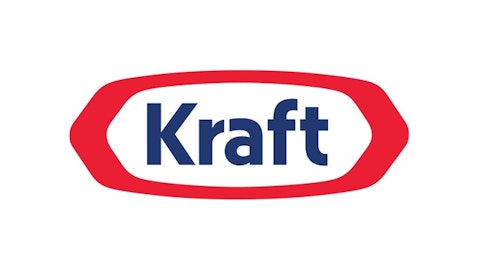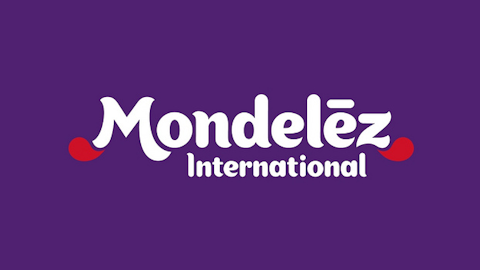With the recent disclosure that he had taken significant stakes in both PepsiCo, Inc. (NYSE:PEP) and Mondelez International Inc (NASDAQ:MDLZ), it is fair to speculate on the motives of maverick investor Nelson Peltz. Based on his previous experiences with well-known companies, it seems possible that he intends to leave his mark on both firms’ boards. Indeed, more dramatic moves might not be out of the question.

According to the most recent filing, Peltz’s Trian Fund Management now has a $270 million stake in PepsiCo, Inc. (NYSE:PEP) and a $494 million stake in Mondelez International Inc (NASDAQ:MDLZ). For Mondelez International Inc (NASDAQ:MDLZ), this equates to less than 1 percent of its market capitalization. For PepsiCo, Inc. (NYSE:PEP), Peltz’s stake represents little more than a rounding error however the fact that Peltz and PepsiCo, Inc. (NYSE:PEP) are already engaging in “strategic, long-term” discussions suggests that the investor has big plans for these firms.
PepsiCo and Mondelez at a Glance
PepsiCo, Inc. (NYSE:PEP) is a massive food and drink distributor that markets many recognizable brands. In addition to signature drinks like Pepsi and Gatorade, the company also sells a variety of breakfast cereals, snacks, coffees, teas and juices. Meanwhile, Chicago-based Mondelez International Inc (NASDAQ:MDLZ) primarily offers coffee and cracker products through brands like Nabisco, Cadbury and Oreo. It also markets Trident gum and Tang juice mixes.
The synergies between PepsiCo and Mondelez International Inc (NASDAQ:MDLZ) are obvious. The companies have plenty of redundant divisions that would mesh well together, and the prospect of a Pepsi drinks spin-off raises the possibility that the “dry foods” components of the two companies could combine in a merger. At this point, such a scenario is highly speculative. Nevertheless, investors cannot discount the obvious utility in combining similar pieces of these two companies.
Financial Comparisons
It might be useful to compare PepsiCo and Mondelez to determine whether the two are suitable merger partners. For starters, both companies are solidly profitable. In 2012, PepsiCo earned about $6.1 billion on $65.2 billion gross revenue and walked away with a profit margin of 9.3 percent. At over 27 percent, its return on equity figure was significantly better. Meanwhile, Mondelez earned $1.5 billion on $35 billion gross revenue for a final margin of 8.6 percent. Its return on equity figure of less than 5 percent left something to be desired.
Both of these companies are highly leveraged. In particular, Mondelez has a debt load of nearly $20 billion and a cash balance of just over $4.5 billion. Although it offers adequate free cash flow of about $1.6 billion, this may not be enough to reduce its leverage in a timely fashion. For its part, PepsiCo has $29 billion in debt to about $7 billion in cash. Proportionally, its levered free cash flow figure of nearly $7 billion is much better than Mondelez’s.
Past Peltz Moves
Through Trian, Nelson Peltz has accumulated noticeable stakes in both of these companies. In the grand scheme of things, neither is particularly large. However, Peltz’s past decisions as an investor suggest that he must be taken seriously.
The man’s legacy with H.J. Heinz Company (HNZ) is a good place to start. After a lengthy proxy battle with the company, Peltz eventually got most of what he wanted. In hindsight, he has been credited with shoring up the company’s fortunes and turning into an attractive acquisition target. His final vindication came with the recent announcement that Warren Buffet’s company was interested in absorbing the company into its ever-growing portfolio.
His 2008 acquisition of Wendy’s serves as another example of Peltz’s propensity for waging aggressive proxy battles for struggling food companies. While PepsiCo and Mondelez are probably too large for Peltz to establish an outright majority stake in either firm, his past moves suggest that he may be able to exert his influence by other means. Some may speculate why he hasn’t included some of these firms as his targets.
Ramifications and Potential Plays
PepsiCo and Mondelez investors have a right to be uneasy about the prospect of Peltz waging a proxy battle for either of these companies or engineering a spin-off or merger that might not be in their best interest. However, these worries may be premature. Despite intensifying rumors that Peltz will put forward some kind of plan for closer ties between the two companies, there have been no on-the-record conversations or statements about what such a move might look like. Moreover, hindsight has generally shown Peltz’s moves to provide shareholders with long-term value.
Going forward, investors should be prepared for further developments. Since Peltz appears to have close relationships with many activist and institutional investors in PepsiCo and Mondelez, he may be working behind the scenes to craft a workable alliance or put together financing for a potential proposal. Although it is unlikely that anything will come to pass before the end of the year, the pieces could fall into place shortly thereafter. In the event that this situation produces a complex merger between spun-off components of PepsiCo and Mondelez, investors may wish to establish long positions in these companies prior to any definitive announcement
The article What Does Peltz’s Stake Mean for PepsiCo and Mondelez? originally appeared on Fool.com and is written by Mike Thiessen.
Copyright © 1995 – 2013 The Motley Fool, LLC. All rights reserved. The Motley Fool has a disclosure policy.



